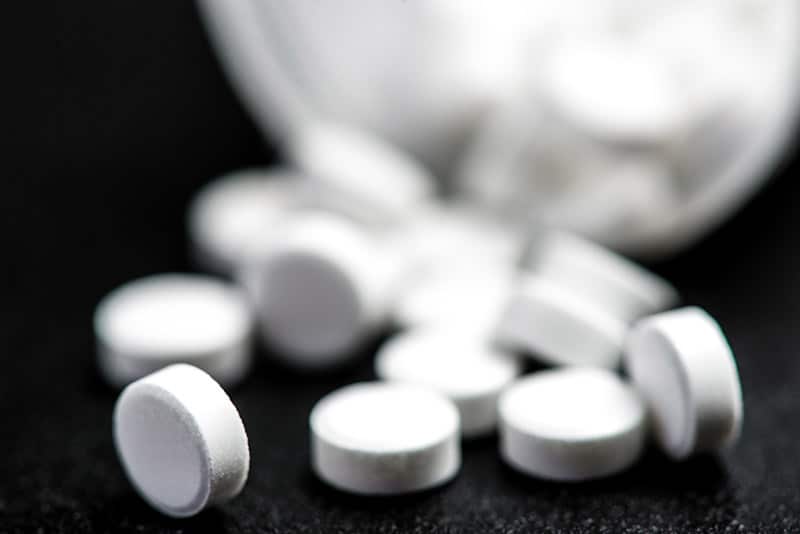For decades, taking a daily low-dose aspirin or “baby aspirin” was considered a simple way to help prevent heart attacks and strokes. But recently, a group of new studies has emerged, challenging this practice for millions of healthy people.
In fact, it may do more harm than good.
With this research in hand, new guidelines from the American Heart Association and American College of Cardiology advise against the routine use of low-dose aspirin for prevention, suggesting the potential risks of bleeding outweigh the benefits.
But it’s not quite as cut and dried as it seems.
While important and groundbreaking, this shift away from aspirin therapy does not apply to everyone, and reading beyond the headlines is a must, says Curtiss Moore, MD, cardiologist on the medical staff at Methodist Mansfield Medical Center.
These new recommendations only apply to healthy people who have no known cardiovascular disease or stroke history and are looking to daily aspirin as a preventive measure.
“What has been discovered is that for primary prevention — a term for avoiding a first instance of a heart attack, stroke or other type of cardiovascular event — the risk of bleeding is evenly matched with the benefit of reducing a heart attack,” says Dr. Moore.
Aspirin’s interference with blood-clotting makes it beneficial to patients with an increased risk of heart attack. But that same property becomes a liability when your blood’s platelets can’t clump together to make a wound, either internal or external, stop bleeding.
A big impact
According to a Harvard study in July 2019, about a quarter of people age 40 and older (that’s 29 million people!) without cardiovascular disease are taking aspirin each day.
And of those folks, 6.6 million are taking aspirin without a doctor’s recommendation. This potentially puts them at a higher risk for bleeding without the guarantee of preventing a first stroke or heart attack.
What should you do?
For anyone who has had a stroke, heart attack, bypass surgery or any procedure to insert a stent into the coronary arteries, there is no debate that taking low-dose aspirin daily is still useful.
“In this group of people, we are willing to accept the risk of bleeding because the risk of another stroke, heart attack or death is higher,” Dr. Moore says. “Daily aspirin therapy is a cornerstone of treatment for them.”
The U.S. Preventive Services Task Force still recommends daily aspirin if:
-
- You are between the ages of 50 to 59.
- You are not at increased bleeding risk.
- You have an increased risk (10% or greater) of heart attack or stroke over the next 10 years.
Dr. Moore says the decision to use low-dose aspirin therapy for people of other ages is more complicated. He encourages people to visit their health care provider to calculate their individual risk using factors such as:
-
- Age (risk increases every year after age 50)
- Gender (males have more risk)
- Ethnicity (African Americans have a higher risk)
- Diabetes
- History of high blood pressure
- Smoking
- Elevated cholesterol levels
It may be worth consulting a doctor to find an alternative to aspirin therapy, Dr. Moore says. There’s evidence that medications known as statins are a better option for preventing heart attacks and strokes.
The bottom line? Before starting a daily aspirin regimen, have a discussion with your doctor. If you are already taking aspirin daily and wonder if you should stop, Dr. Moore advises getting the OK from your doctor first.

